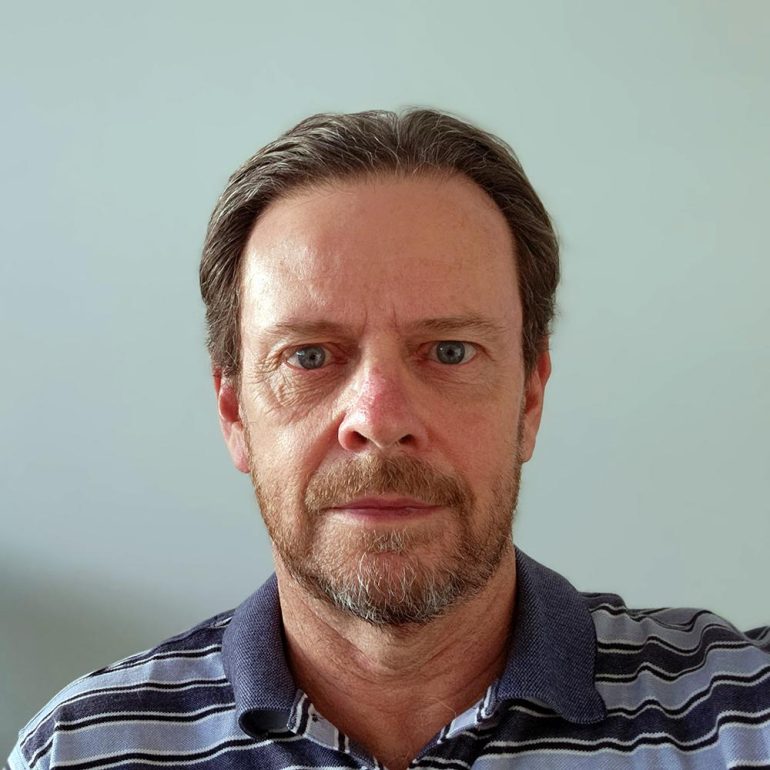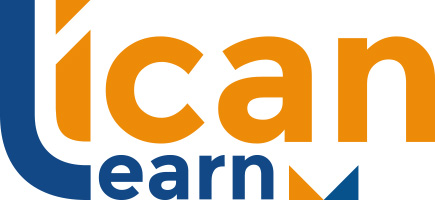
Jeff Cronan
After years of crunching numbers as an accountant in the oil and automotive industries, it was time for a career change. Meet Jeff Cronan – he’s now putting his ICAN Learn Diploma of Financial Counselling to work helping people chart a course towards financial wellbeing.
Welcome to The Yarn, Jeff! Can you tell us a bit about your previous work life?
My background is in commerce, and I have worked in the oil, automotive repair, and automotive aftermarket parts industries. I started my career as an accountant, working for Shell for many years. After that, I had senior finance roles at Lube Mobile and Genuine Parts Company (GPC), and later, I moved into operational and general management roles at GPC. So, a move into financial counselling was a major career shift for me.
That is a huge career change. Why financial counselling?
I guess I’ve always had a social conscience. Even during my time in management roles in commerce, I was always keen to help people strive to do their best in their job or career. These personality traits and interests led me to explore the world of Financial Counselling when the opportunity for a career change came my way. The more research I did into financial counselling and the more people I spoke to in the sector, the more excited I became about this change.
When I decided to pursue a career in financial counselling, I was in a “career transition” phase. By that, I mean I wasn’t working full time (doing casual work a couple of days a week), so I was fortunate to have time to complete my diploma. In terms of time, I effectively spent one day per week attending class and around one day per week doing reading and assessments.
Can you tell us about your work placement experience?
We started researching and applying for placement positions around the halfway mark in the diploma. The ICAN Learn admin staff and our main trainer, Natasha, provided excellent support throughout this process. I was fortunate enough to secure a trainee financial counsellor role with Salvation Army Moneycare, which effectively meant I had a paid placement. It was time to quit my casual job and jump into the sector full time!
The “on-the-job” learning cemented everything we learned in class. I learnt so much over my placement period and really appreciated why it is such an important part of the diploma.
How are your future employment opportunities looking?
My trainee position enabled me to seamlessly transition into a full-time financial counselling role with Moneycare, where I remain today. As a newbie to financial counselling and the broader community services sector, I was looking for an organisation that had sufficient resources to provide exceptional training and support, as well as being a “generalist” provider of financial counselling services. By this, I mean not specialising in a particular area like Alcohol and other Drugs (AOD), or Domestic Violence. I was keen to be able to support people with a range of underlying financial issues. I have to say that joining the Salvation Army Moneycare team has delivered all those things.
What was the most enjoyable part of completing your Diploma of Financial Counselling with ICAN Learn?
When you think about choosing an RTO, you need to consider how they structure their learning and how that fits in with your personal learning style. What I loved about ICAN Learn’s model was the “compulsory” Zoom virtual classroom setting. I benefited from committing to a day a week to attend class and enjoyed the familiarity of meeting up with the same crew each week.
When you have the same people attending class for the whole unit or course, there is a tremendous opportunity for that group to bond and support each other. Even though it was a virtual classroom, our trainers focused on bringing the group together in the early stages of the course, which paid off in spades.
As the course progressed, we would constantly bounce thoughts and ideas as we completed assessments. The virtual classroom also allowed us to break out group discussions, which is a great way to cement a teaching point. The students also have access to the trainer’s PowerPoint presentations, learner guides, reading material, and assessments in one location. It’s so easy to navigate!
The other great thing about studying with ICAN Learn is that you’re made to feel like part of the community. The teaching staff are second to none, and the support staff work tirelessly to make the whole experience really enjoyable.
What is the best thing about getting your Diploma of Financial Counselling?
I’d be lying if I didn’t say there was a sense of relief when I knew I’d achieved my diploma. There was a lot of work, but I learned a lot and enjoyed the journey. I’d say the best thing about getting my diploma is the sense of achievement. I haven’t done any tertiary studies for many years and wasn’t sure how I’d go with it. I did surprise myself and felt motivated and energised by the whole experience. Achieving the diploma represents nailing that first milestone in my journey toward a totally new career. Also, as a diploma graduate, I am now a fully-fledged Associate Member of the Financial Counsellors’ Association of NSW (FCAN).
What is the one thing you would say to people wanting to become a financial counsellor?
If you’re thinking about becoming a financial counsellor, the idea has probably ignited a passion for community service and some thoughts about how your personal skills and life experience can be put to good use. I would encourage people to talk to a few financial counsellors to find out what “a day in the life” looks like. Ask them about what success looks and feels like and what a bad day looks like. If you still feel like financial counselling is your thing, research the RTO that’s right for you. Think about how you learn best and try to get a good match with your RTO. Your diploma is an investment in your career. A great learning experience has a huge bearing on the quality of that diploma. Financial counselling is not for everyone, but if it is right for you, you will find it a rewarding and fulfilling career choice.


